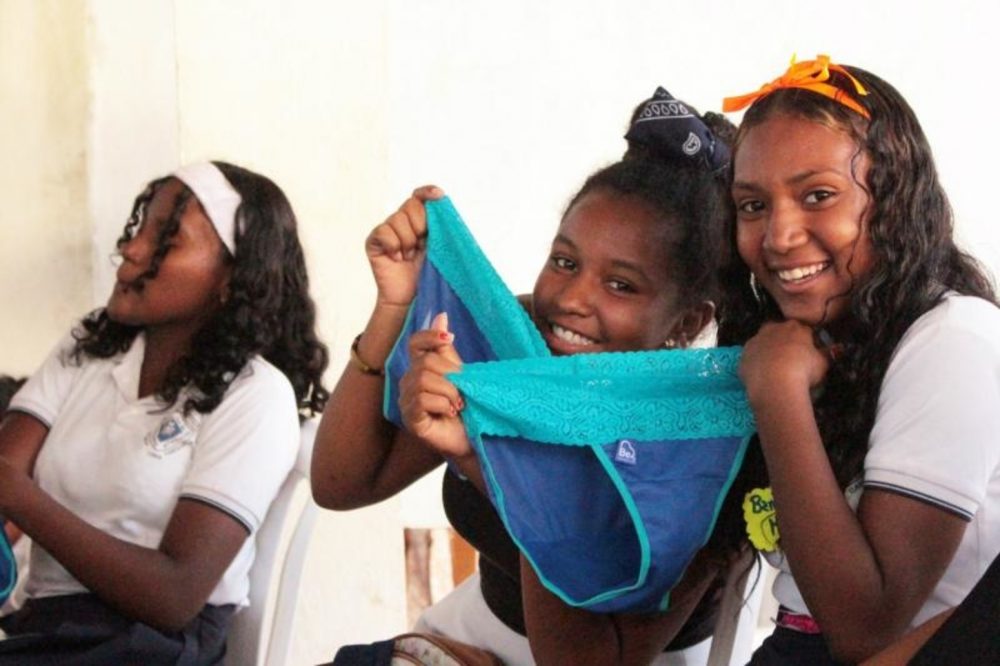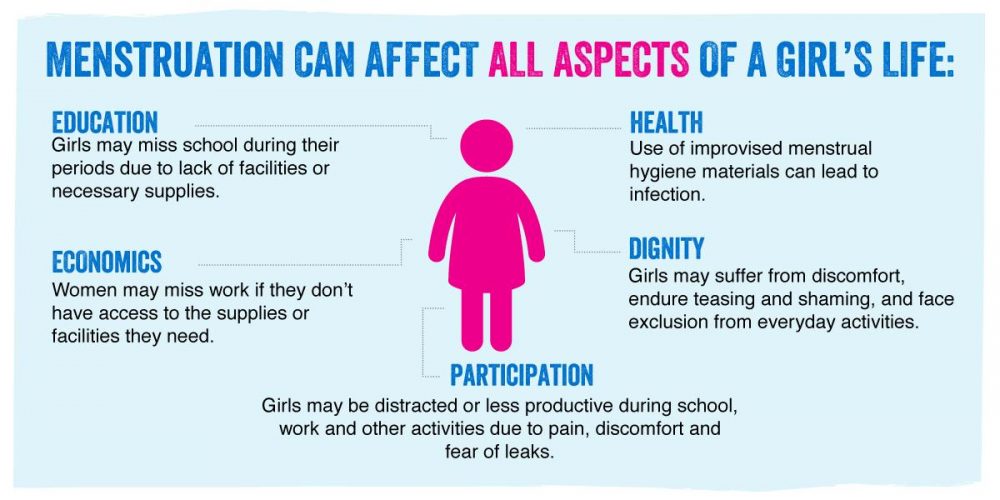For billions of women and girls worldwide, menstruation is a monthly reality. Yet in many countries, people still face serious challenges when it comes to managing their periods. Myths, stigma and harmful gender norms around menstruation exacerbate the difficulties for girls and women across the world.
How does menstruation affect lives?
If not properly managed, menstruation can interrupt daily life. Adolescents especially experience extremely painful periods which can affect their attendance and performance at school. A lack of adequate facilities and materials, restrictions on girls’ movements during their period and feeling ashamed or ‘unclean’ also contribute to girls skipping school.
Taboos, myths and shame surrounding menstruation can lead to teasing, shaming and exclusion from daily activities and have a negative effect on girls’ feelings of dignity.
Why are those who menstruate discriminated against?
Period-shame is rooted in gender inequality. Cultural and religious traditions around periods are often derived from discriminatory, patriarchal norms about a girl’s status and place in society.
As a result, girls and women are often expected to refrain from normal activities, such as bathing or cooking and may even be banished from the home during their period. These restrictions and negative attitudes towards menstruation affect girls’ self-esteem.
What is Plan International doing to support menstrual hygiene management?
Together with local governments and schools we are training district health workers, teachers and volunteers to educate young people about periods and talk about them in a shame-free way.
We also distribute menstrual hygiene materials in schools and teach girls how to manage their periods so they feel confident and stay in school.
What are the benefits of a period-shame free society?
By improving menstrual health and tackling period-shame we can improve girls’ attendance and performance at school; break down taboos and misconceptions around menstruation; raise girls’ self-esteem and enable girls to fully participate in all aspects of society.
Around 500 million girls and women lack access to adequate facilities to manage their periods



